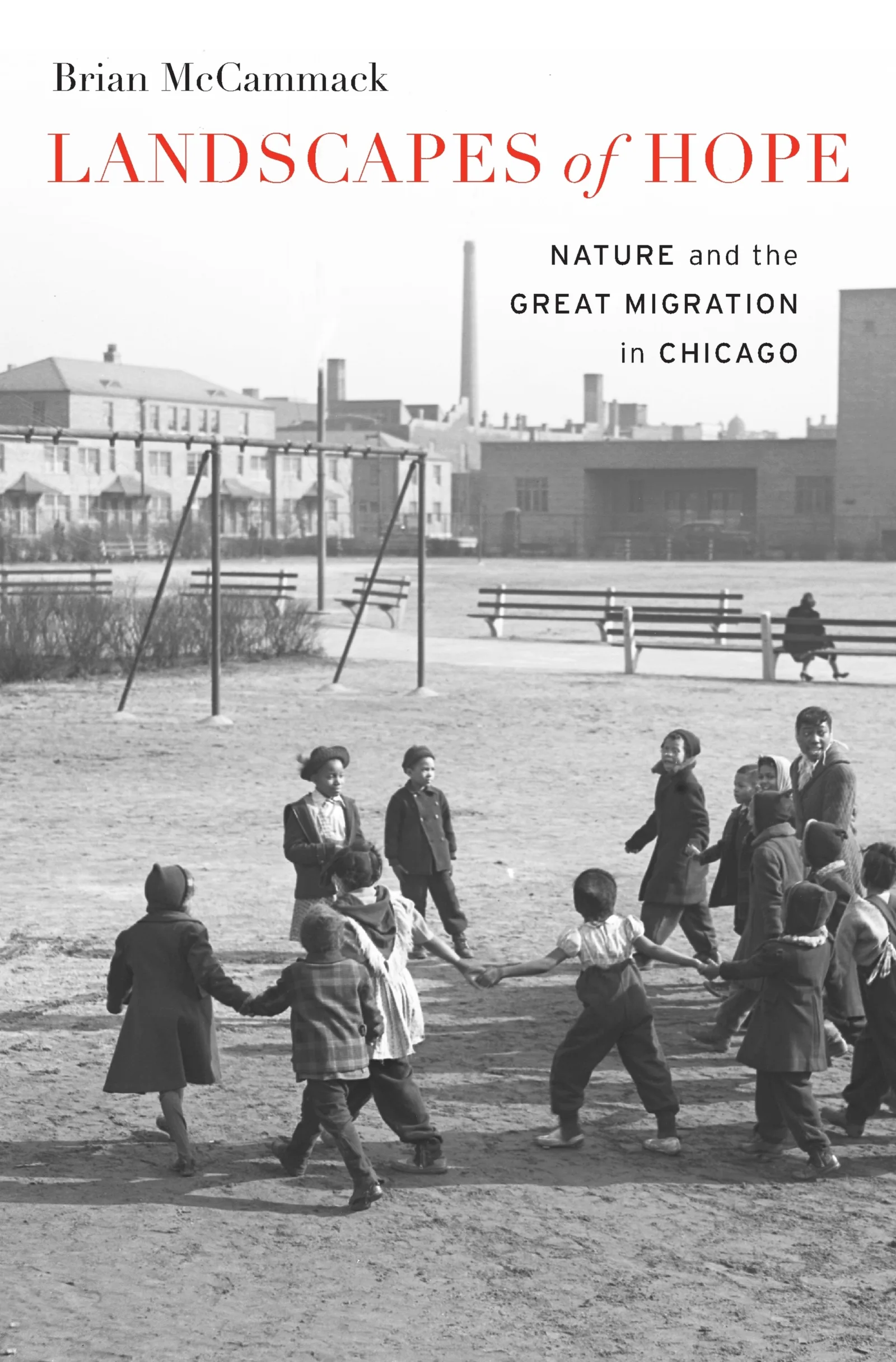Situated at the intersection of race and place in American history, Landscapes of Hope: Nature and the Great Migration in Chicago traces the contours of a black environmental consciousness that runs throughout the African American experience.
Between 1915 and 1940, hundreds of thousands of African Americans moved away from the South to begin new lives in the urban North. In Chicago alone, the black population quintupled in a quarter century. In the first interdisciplinary history to frame the African American Great Migration as an environmental experience, Landscapes of Hope travels to Chicago’s parks and beaches as well as youth camps, vacation resorts, and the farms and forests of the rural Midwest. Despite persistent racial discrimination and violence in many of these places, African Americans retreated there to relax and sometimes work, reconnecting with southern identities and lifestyles they had left behind. No matter how crowded or degraded, green spaces provided a refuge for black Chicagoans and an opportunity to realize the promise of nature and of the Great Migration itself.
After his talk, the author will sign copies of the book, which will be available for purchase in the Newberry Rosenberg Bookshop.
Brian McCammack is Assistant Professor of Environmental Studies at Lake Forest College. Landscapes of Hope recently won the Organization of American Historians' Frederick Jackson Turner Award for best first scholarly book in American history, the American Society for Environmental History's George Perkins Marsh Prize for best book in environmental history, and the John Brinckerhoff Jackson Book Prize for contributions to landscape studies.
Download a PDF flyer for this event to post and distribute, and check out a Quick Guide to related materials in the Newberry collection.
Cosponsored with Chicago Collections Consortium.
Your generosity is vital in keeping the library's programs, exhibitions, and reading rooms free and accessible to everyone. Make a donation today.
